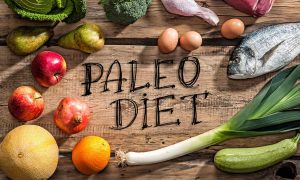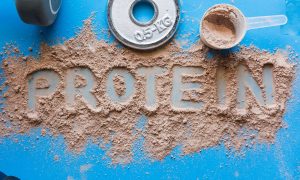How Much Protein Per Day Should You Be Having?

|
|
For anybody looking to get fitter and healthier, their diets should without question become one of the main priorities, alongside ensuring they get enough physical exercise and activity of course. The foods we eat on a daily basis play a number of key roles with various processes and functions within our bodies, yet for some reason many of us simply don’t prioritize our diets and we therefore think we can get away with eating and drinking whatever we like. Not surprisingly, worldwide obesity numbers are at record breaking highs, and that trend doesn’t look set to change anytime soon. For anybody that’s even remotely active, protein is one of the most important macronutrients they could ever wish for, as it is responsible for a number of various internal processes and provides a whole host of health benefits to the body. For physically active individuals such as athletes or bodybuilders however, protein is more important than ever. Protein is essential for the growth and repair of muscle tissue, it helps transport oxygen around the body, it promotes a healthy metabolism, and it is essential for cellular health and regeneration. But how much protein should we be consuming each day? To help get to the bottom of this question, here’s a more in-depth look.
Average adult males and females

Although adults come in all shapes and sizes, and no two individuals are 100% alike, generally speaking, health experts recommend that average adult males and females consume a certain set amount of protein each day, with women requiring 46 grams of protein per day, and men requiring 56 grams of protein each day. Average males and females can also easily calculate exactly how much protein they need on a daily basis by consuming 0.8 grams of protein for every 2.2 pounds (1kg) that you weigh.
Calculating protein based on how much you eat
Another very general and simple way of calculating exactly how much protein you require each day is to base it on how many calories you consume daily. Currently, experts recommend that between 10 and 35% of your calories should come from quality protein sources. So, if you consume 2000 calories per day, between 200 and 700 of your calories should come from protein.
Based on how much you weigh
Another common and pretty effective method of calculating how many calories you should be eating on a daily basis is to base it upon your bodyweight. Many experts again recommend consuming 0.8 – 1 gram of protein for every 2.2 pounds of bodyweight. So, a 150 pound individual would require around 55 – 68 grams of protein per day.
Protein for maintaining muscle

As you probably know, protein and muscle go hand in hand with one another because, as mentioned previously, it’s essential for the growth and repair of muscle tissue. This is why bodybuilders tend to follow high protein diets. For anybody looking to simply maintain muscle mass however, they require slightly less protein than anybody looking to build lean muscle mass. For individuals looking to maintain muscle mass, experts recommend consuming 1 gram of protein, for every pound of bodyweight that they weigh. This is obviously very simple to calculate so as an example, a 200 pound individual would require 200 grams of protein per day.
Protein for building muscle
For people looking to bulk up and build lean muscle mass, experts recommend that they follow a high protein diet rich in healthy and quality protein sources. Currently, trainers and nutritionists recommend consuming 1.5 – 2 grams of protein for every pound of bodyweight that they weigh. So, again, sticking with an individual weighing 200 pounds, they would require between 300 and 400 grams of protein per day, which is quite a lot.
Where should the protein come from?

Just to complicate matters further, it is also recommended that individuals consume a vast array of different sources of protein, rather than simply sticking to the same one. Experts recommend consuming foods such as:
• Chicken breast
• Lean steak
• Turkey
• Game
• Lean red meats
• Organic eggs
• Organic nuts
• Seeds
• Natural nut butters
• Fish
• Seafood
• Cottage cheese
• Protein supplements
It’s also advised that individuals avoid heavily processed meats such as bologna, salami, and various luncheon meats because they often contain added fat, salt, sugar, and chemical flavourings, colourings, and preservatives as well.
When is the optimal time to meet your daily requirements?
Say a person requires around 100 grams of protein per day, what’s stopping them from simply eating a huge plate full of meat, fish, and eggs, and then washing the entire meal down with a whey protein shake so that they’ve met their daily macros and no longer have to worry about ensuring they eat enough? Well, unfortunately it doesn’t work that way because the body can only process around 35 – 40 grams of protein in one go. That means that if you were to cook up a huge batch of meat and fish, and then consume a protein shake at the same time, much of the protein consumed simply wouldn’t be able to be used by the body and so it would basically go to waste. Ideally you should look at eating 4 – 6 times per day, in which any two of your meals can consist of a protein shake. Aim at consuming 30 – 35 grams of protein per meal to allow for optimal utilisation, and wait two to three hours between each meal.














